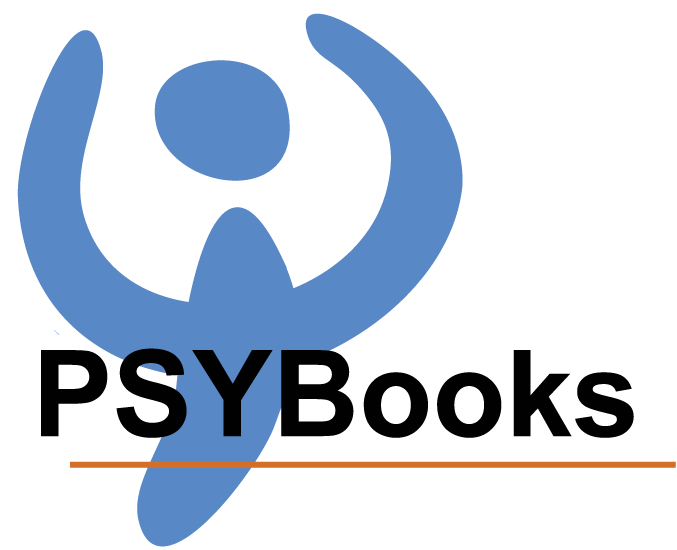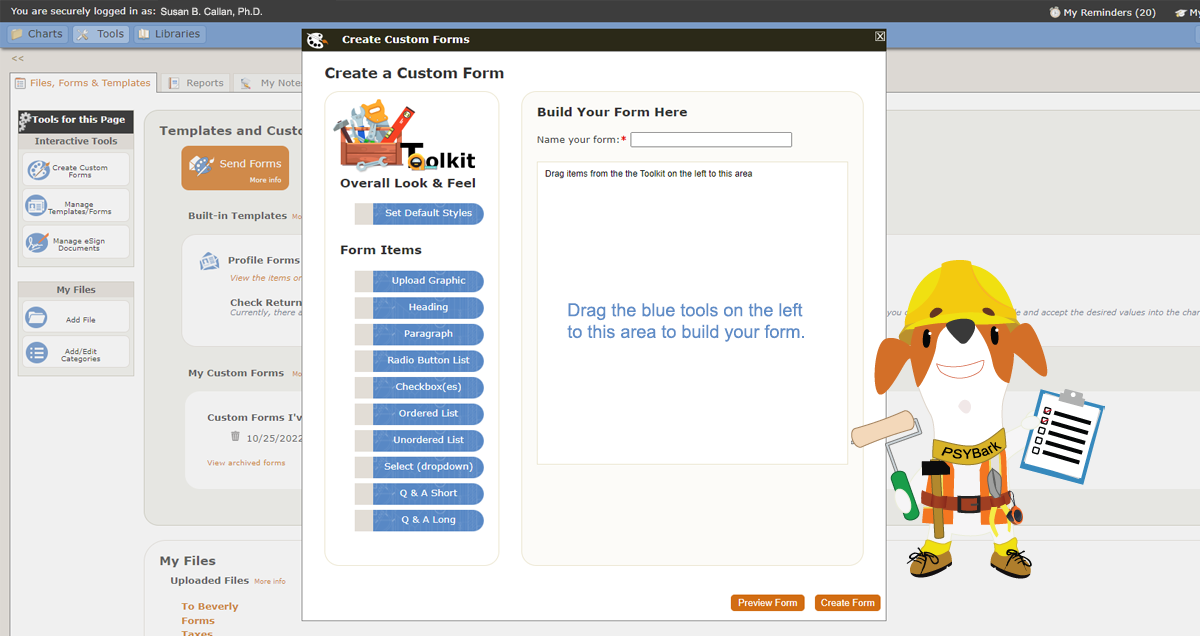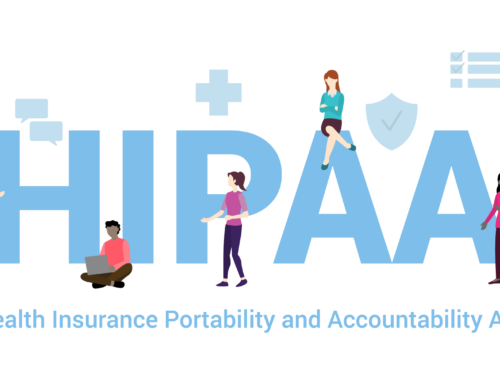COVID has been responsible for ushering in a whole host of changes in how we deliver mental health services. In the beginning, the obvious need was to obtain a video platform we liked. Over time, we began to see the need for collecting eSignatures and also for additional tools such as encrypted email and texting. Our lists kept growing as we realized other things we needed as online therapists. As we expanded our knowledge about HIPAA, we became more astute about the importance of keeping patient data secure with the tools we chose. We looked for solutions that would be safe, easy-to-use, and cost-effective. Start-up companies kept their noses to the ground in an attempt to anticipate our needs and began building stand-alone apps for each of the products they felt might return a decent profit. EHR/EMR products also joined the bandwagon by adding these features to their existing products – some as free add-ons, some for additional fees.
The current “must have” feature on many therapists’ wish list is customizable forms. If you’re not familiar with the concept of a customizable form, it’s an app, or a section of a larger app, that allows the therapist to create online forms to replace the paper forms they normally use in their practice: their intake forms, informed consents, HIPAA agreements, Good Faith Estimates, Depression Inventories – whatever they typically use. Once the digitized forms are created, they can be securely sent to their patients, who fill them out, esign them (if requested), and send them back to the therapist.
Before custom forms became available, the best we could do was to send our forms as attachments to our secure email. The patient was then required to download the forms, print them, fill them out, scan the completed forms, and send them back to us, either via attachments to encrypted email or by direct upload, depending on what kind of software capabilities we had. While this process can be made HIPAA compliant with the right software, it is challenging for many patients. It requires a certain level of technological sophistication and also that the patient has access to both a printer and a scanner. Customizable forms simplify the entire process considerably, plus they are faster and more secure. Since most people are familiar with filling out online forms, using customizable mental health forms is generally considered to be a superior choice for getting data from patients.
Stand-Alone vs. Integrated Forms
Although there are some quite good stand-alone apps for behavioral health custom forms, it is almost always better to get them as part of an integrated product if you can. There are several reasons for this:
- The database of an integrated product will already have most, if not all, the data you’ll need to build your forms. You don’t have to enter it again. This cuts down on potential data entry errors and also saves you time. For example, your EHR will likely already have all all contact information – both yours and your patients’. Your custom forms will be able to access that data without any extra work on your part and display it in your forms.
- It will often cost less to use an integrated product. Stand-alone products may run in the $20 a month range or higher. Given that a complete EHR is often in the $50 a month range, paying $20 for a single feature seems a bit steep.
- Integrated products are generally safer. With a non-integrated product, there are potential safety leaks around transferring data from your stand-alone app(s) to your EHR or whatever other type of central data repository you might use. Although an extremely tech-savvy person can usually find ways that ARE safe, most therapists don’t possess that level of technical sophistication.
- Finally, the extra step of transferring data from your stand-alone app to your EHR or storage device takes time. When your custom forms app is part of your integrated app, there’s no need to transfer the data. It’s already where it needs to be.
Customizable Forms in PSYBooks EHR/Portal
PSYBooks’ Custom Forms have several features that distinguish it from the others. Here’s a partial list:
- PSYBooks’ Custom Forms are included with the EHR. You can create and send an unlimited number of forms for no extra charge.
- The forms have an easy-to-use drag and drop interface (see an example at the top of this page).
- The forms come with variables which can be used as needed. For example, if you want to put your name, address and contact info at the top of your form, there’s a variable you can drag on to the form. You don’t have to type it in each time. Similarly, if you move or add a new office, since that information is in a variable, you don’t need to do anything to your Custom Forms. The new contact information will automatically be transferred to your Custom Forms.
- Group practice owners can create shared forms for their entire practice to use.
- You can create email templates to use to send your Custom Forms. For example, if you have a standard intake packet of forms you send to new clients – and a standard email you send with it, you can save the email and reuse it each time with your intake packet.
- You can send Custom Forms with the Onboarding Tool. In other words, with just a few clicks, you can send an intake packet to one or many new clients. This will include their Portal User invite, their setup for encrypted email, their Profile, so they can fill out their PSYBooks charts plus any Custom Forms you’ve asked them to fill out.
- You can request eSignatures on any form you send.
- When a patient returns a Custom Form, the therapist is notified via email and in their TNT (Therapist Notification Tool). Returned Patient Custom Forms are automatically placed in their chart. The therapist doesn’t have to move them.
- The therapist’s TNT also keeps track of any outstanding forms that they’ve sent but that have not been returned.PSYBooks’ Custom Forms can be sent to anyone who’s a Portal User. They are not restricted to use by patients.
Check out PSYBooks Custom Forms for yourself by signing up for a free demo and/or a free trial. No cost for either!






